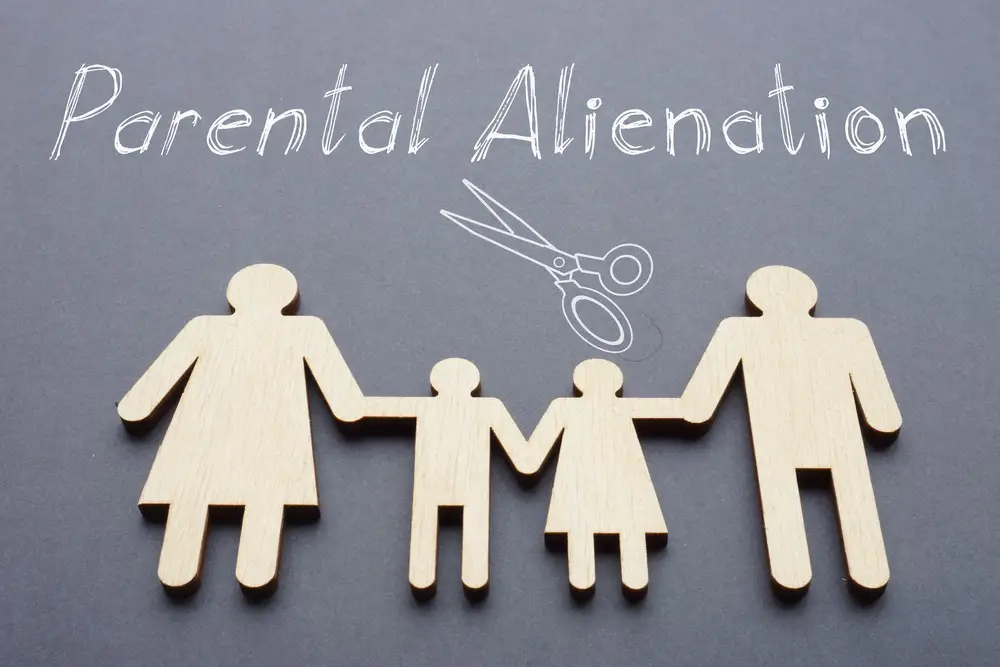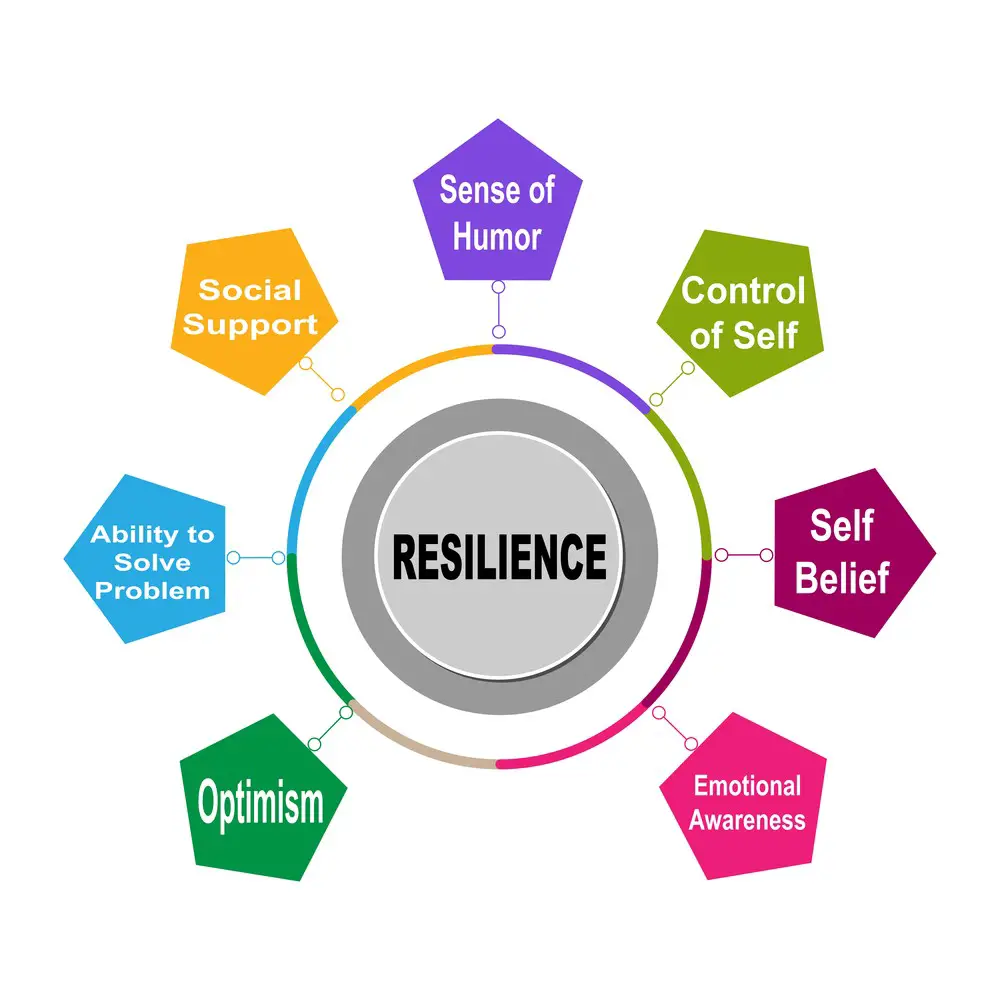Parental alienation is a heartbreaking and damaging phenomenon that affects both children and their parents. It occurs when one parent manipulates their child to unjustifiably reject or show hatred towards the other parent, seriously impacting the targeted parent’s life. It is essential to understand the various consequences targeted parents face due to parental alienation, as it can help raise awareness and support for those experiencing this challenging situation.
The effects of parental alienation on targeted parents are multifaceted, reaching various aspects of their lives. These consequences range from emotional turmoil and psychological distress to financial, work-related, and social relationship issues. Moreover, targeted parents often face legal challenges, necessitating the involvement of mental health professionals to advocate for and support them through this harrowing journey. In this article, we will explore the different effects parental alienation has on targeted parents and discuss the strategies they employ to cope with these consequences.
Key Takeaways
- Parental alienation negatively impacts targeted parents’ emotional and psychological well-being
- The consequences can also extend to financial, work-related, social, and legal aspects of their lives
- Mental health professionals play a crucial role in supporting targeted parents through coping strategies and interventions
 Understanding Parental Alienation
Understanding Parental Alienation
Parental alienation is a complex and challenging issue faced by many families. It occurs when one parent intentionally manipulates a child to turn against and undermine their relationship with the other parent, often known as the targeted parent. This process involves a range of alienating behaviors that lead to the child rejecting the targeted parent without justifiable reason.
The alienation can manifest in various ways, such as severe parental alienation syndrome, where the child strongly and persistently resists contact with the targeted parent. In these cases, the child’s rejection may be accompanied by irrational beliefs or unfounded accusations against the alienated parent. This situation is distressing for both the child and the targeted parent, considering they might have shared a positive relationship before the alienation process began.
Research on parental alienation has identified several consequences experienced by targeted parents, including emotional, behavioral, cognitive, physical, and social impacts. The emotional toll can be hefty as targeted parents often feel betrayed, helpless, and powerless to address the situation. Feeling isolated and disconnected from their child, they may experience depression, anxiety, and grief.
To cope with these challenges, targeted parents may adopt different strategies, such as:
- Seeking professional help from therapists and counselors
- Engaging in self-care activities, such as exercise, meditation, and hobbies
- Developing a support network of friends, family, and other targeted parents
- Pursuing legal advice and actions to address custody and visitation issues
- Focusing on positive memories and experiences with their child
It’s essential to recognize that parental alienation is not a blame game but a complex situation that can have lasting impacts on everyone involved. By understanding the nature, effects, and coping strategies related to parental alienation, targeted parents and professionals supporting them can better navigate this rugged terrain and work towards rebuilding damaged relationships.
 Psychological Impact
Psychological Impact
The effects of parental alienation on targeted parents can take a significant toll on their mental health. Many targeted parents experience a wide range of emotions, including depression, distress, and emotional pain. These intense feelings may manifest as symptoms such as suicidal ideation or hopelessness.
Targeted parents often grapple with feelings of powerlessness and despair as they struggle to maintain a connection with their children. The stress and frustration that arise from these situations can contribute to a deteriorating mental state. Furthermore, the ongoing conflict may hinder a parent’s ability to function daily, impacting both work and personal relationships.
In some cases, targeted parents may internalize these negative emotions, leading to self-doubt and a diminished sense of self-worth. They might question their abilities as a parent and struggle with feelings of inadequacy. As a result, targeted parents may become increasingly isolated, withdrawing from social activities and interactions.
To help mitigate these psychological effects, targeted parents can consider:
- Seeking professional help, such as therapy or counseling, to manage their mental health and emotional wellbeing
- Establishing a strong support system of family and friends who can empathize and provide much-needed encouragement
- Engaging in self-care activities, such as exercise, meditation, or hobbies, to alleviate emotional pain and promote personal growth
By taking proactive steps to address the psychological impact of parental alienation, targeted parents could better navigate these emotionally challenging situations and work towards finding a sense of balance and healing.
 Emotional Experiences
Emotional Experiences
When it comes to the effects of parental alienation on targeted parents, various emotional experiences can arise. In this section, we will explore common emotional reactions, including anger and frustration, grief and loss, fear and anxiety, and issues surrounding self-worth and identity.
Anger and Frustration
Targeted parents often experience intense feelings of anger and frustration. This can stem from the sense of injustice they face, as well as the lack of control they have over the situation. They may feel hate towards the alienating parent manipulating their child(ren), and frustrated by the inability to communicate effectively with their child or understand their feelings.
- Key Takeaway: Anger and frustration are natural and expected emotions for targeted parents, but it’s crucial to manage these feelings constructively and avoid acting upon them in a way that negatively impacts the parent-child relationship.
Grief and Loss
For targeted parents, the experience of parental alienation can be accompanied by profound feelings of grief and loss. This may include:
- Ambiguous loss: Targeted parents might feel the pain of losing their child(ren), even though their children are still alive. The uncertainty of this type of loss can feel overwhelming and challenging to process.
- Disenfranchised grief: This refers to the sense of sorrow that comes when a loss is not validated by society, making it challenging for targeted parents to find support and understanding from others.
- Key Takeaway: Grieving these losses is a significant step in coping with parental alienation, and targeted parents should seek support from professionals, support groups, or friends to work through these emotions.
Fear and Anxiety
Parental alienation can also lead to fear and anxiety for the targeted parent. They may worry about how their child’s emotional well-being is affected by the alienating behavior and fear the long-term impact on their relationship with their child. Anxiety might also stem from concerns about legal battles or involvement with the child.
- Key Takeaway: Manage fear and anxiety by focusing on what can be controlled, seeking professional help if necessary, and staying informed about their rights and available resources.
 Self-Worth and Identity
Self-Worth and Identity
Finally, targeted parents may struggle with self-esteem and identity as a result of parental alienation. They might question their worth as a parent and internalize the hurtful messages projected onto them by the alienating parent. This attack on their identity can damage their ability to cope and move forward.
- Key Takeaway: Targeted parents should work on building their self-esteem and understanding that the actions of the alienating parent do not define their worth as a parent or individual. Seeking support from others who have experienced this can also be beneficial in regaining a sense of identity and strength.
 Effects on Familial Relationships
Effects on Familial Relationships
Parental alienation can significantly impact the relationships within families, particularly between the targeted parent and their children. When one parent attempts to alienate a child from the other parent, it creates a divide within the family unit and can lead to long-term estrangement between family members.
For the targeted parent, dealing with parental alienation often results in feelings of loss, helplessness, and sadness. They may feel isolated from their child and unsure how to rebuild the relationship. Families can become fractured, with siblings choosing sides and grandparents being kept at a distance.
Children suffering from parental alienation may experience confusion, conflicting emotions, and resentment towards the targeted parent. This experience can disrupt the child’s social and emotional development. Moreover, alienation can negatively affect the child’s ability to form healthy attachments and relationships in the future.
To address the effects of parental alienation on familial relationships, targeted parents can employ various strategies. These may include:
- Consistently expressing love and support for their child despite the alienating parent’s actions.
- Engaging in open and honest communication with their child when possible.
- Seeking professional guidance from therapists or support groups specializing in parental alienation.
- Pursuing legal action, when necessary, to enforce parental rights and ensure the child’s best interest is prioritized.
In summary, parental alienation not only impacts the targeted parent but also affects the relationships within the family as a whole. By recognizing the signs and adopting proactive strategies, targeted parents can work towards strengthening and healing their familial relationships.
 Coping Strategies
Coping Strategies
Parental alienation has a significant impact on targeted parents, who must navigate feelings of loss, grief, and frustration. To help alleviate some of these adverse effects, several coping strategies are often used by parents dealing with alienation.
One key coping strategy is seeking support from friends, family, and other targeted parents. By sharing experiences and emotions, targeted parents can lean on their support network and draw strength from others going through similar situations. Online forums, support groups, and local gatherings offer opportunities to connect with others who understand the unique challenges of parental alienation.
Targeted parents may also benefit from therapy or counseling. Mental health professionals can provide guidance and recommendations tailored to each individual’s needs, helping them process the emotions arising from the alienation and develop personalized coping tactics.
Cognitive restructuring techniques can be beneficial for targeted parents. These techniques involve identifying and challenging negative thoughts about the situation and replacing them with more positive and adaptive beliefs. By adjusting the way one perceives parental alienation, targeted parents can begin to regain a sense of control and well-being.
To improve their resilience, targeted parents should focus on self-care and self-compassion. This may involve engaging in activities that enhance relaxation and rejuvenation, such as exercise, meditation, or hobbies. By dedicating time and energy to oneself, targeted parents can foster inner strength and emotional stability.
Lastly, targeted parents need to consider the legal options available to them. Consulting with legal professionals who specialize in family law and parental alienation situations can provide guidance and possible pathways for re-establishing a meaningful relationship with their child.
In summary, targeted parents experiencing parental alienation should explore a variety of coping strategies, including support from others, therapy, cognitive restructuring techniques, self-care, and legal advice. By embracing these approaches, targeted parents can work towards overcoming the challenges of parental alienation and restoring their emotional well-being.
 Impact on Social Interactions
Impact on Social Interactions
Parental alienation can have significant effects on the social interactions and relationships of targeted parents. The psychological stress from being alienated from their child may lead to withdrawal from social activities and support networks. This often results in isolation, which further exacerbates the emotional turmoil.
Targeted parents frequently face difficulties in maintaining relationships with friends and family due to the ongoing stress and feelings of shame and guilt associated with the situation. This strains their connections, sometimes causing rifts that are difficult to repair. Additionally, the alienating parent may actively spread false information or negative impressions about the targeted parent, further damaging their reputation and relationships.
The lack of social support can contribute to a decline in mental health for the targeted parent. With no one to lean on, confide in, or share their experiences with, targeted parents may feel utterly alone in dealing with their situation. In turn, this can exacerbate depression, anxiety, and other psychological issues, forming a vicious cycle of isolation and deteriorating mental health.
To counterbalance the challenges, targeted parents must seek out and maintain connections proactively. They can:
- Engage in social activities that bring them joy and relieve stress
- Reach out to trusted friends and family members for support and understanding
- Join support groups, online forums, or counseling services specifically designed for those dealing with parental alienation.
By fostering strong social connections, targeted parents can better cope with the adverse effects of parental alienation on their emotional well-being and day-to-day life. Their support network can provide the necessary encouragement and guidance to navigate the challenges they face.
 Legal Challenges
Legal Challenges
Parental alienation can result in a range of legal challenges for targeted parents. Those facing this issue often find themselves in complex and difficult situations related to custody, visitation, family violence, and child abuse allegations. Legal challenges can feel daunting as they navigate complex judicial systems, searching for justice and maintaining a connection with their child.
Custody battles are a joint legal challenge faced by targeted parents in instances of parental alienation. They may find themselves fighting for their rights to maintain shared custody or to regain custody after losing it due to alienation tactics employed by the alienating parent. Litigation can be lengthy and expensive, placing additional strain on targeted parents’ financial resources.
Visitation rights often come under threat, especially when the alienating parent endeavors to limit or terminate the targeted parent’s access to the child. Attempting to enforce existing visitation arrangements can be a long, emotionally draining process as targeted parents work with the courts to assert their rights.
In some cases, false allegations of family violence or child abuse may be made against the targeted parent by the alienating parent or even by the child under the influence of the alienating parent. Targeted parents must then present evidence to refute these claims, which may involve costly investigations and expert testimonies. Clearing one’s name and disproving false allegations takes time and can have lasting effects on the targeted parent’s reputation and mental well-being.
Legal representation becomes a critical aspect in navigating these challenges. Targeted parents must seek knowledgeable and experienced legal counsel, as well as engage in supportive networks and resources to help them through the process.

The Role of Mental Health Professionals
Mental health professionals play a crucial role in addressing the issues faced by targeted parents in the context of parental alienation. Their involvement in the process includes offering treatment, providing education, and referring to other specialized professionals, such as developmental psychologists, who can further address the situation.
Mental health professionals are responsible for helping targeted parents cope with the emotional challenges that arise from alienation. This may involve addressing forms of anxiety, depression, and trauma that result from their estrangement from their child. Treatment options can include individual therapy sessions, support groups, or even family therapy to help rebuild relationships.
When working with targeted parents, mental health professionals may provide education on the dynamics of parental alienation. This education can help parents understand the psychological impact on their child and equip them with strategies for responding to the alienating behaviors. This knowledge can empower targeted parents to become active participants in addressing the alienation and repairing the relationship with their child.
Mental health experts may also collaborate with legal practitioners, guiding them through the complexities of parental alienation cases. Proper communication between these professionals is vital in ensuring a fair evaluation and advocating for the best interests of the child, as well as the targeted parents.
In some instances, mental health professionals may refer targeted parents to developmental psychologists. These specialized experts can assess the child’s psychological and emotional development and provide additional insights into the negative impacts of alienation. This information can prove invaluable in tailoring interventions or treatment plans for the targeted parent and the child.
In summary, mental health professionals have the crucial responsibility of providing guidance and support to targeted parents navigating the complexities of parental alienation. This includes offering treatment, education, and referrals when needed, aiming to restore and mend the relationships between targeted parents and their children.

Challenges in Adulthood
When it comes to the effects of parental alienation on targeted parents, several challenges may arise during their adulthood. This section explores the following sub-topics: Substance Use Disorders, Mental Illness, and Employment Challenges.
Substance Use Disorders
Parental alienation can have a lasting impact on adult children of targeted parents. In some cases, individuals may turn to substance use as a coping mechanism. The combination of emotional pain and the loss of a parent-child relationship may contribute to an increased risk of addiction and substance abuse. This can include alcohol, drugs, and prescription medications.
- Key takeaway: Addressing and treating the underlying emotional trauma from parental alienation is crucial in preventing and managing substance use disorders.
Mental Illness
Exposure to parental alienating behaviors during childhood can significantly impact the mental health of adult children. Research has found associations between parental alienation and a heightened risk of developing anxiety disorders and trauma reactions. This disruption of emotional well-being may also contribute to other mental health issues, such as depression and self-esteem problems.
- Key takeaway: Mental health professionals should be aware of the potential long-term effects of parental alienation on adult children and provide appropriate support and intervention.
Employment Challenges
As a consequence of the psychological maltreatment experienced through parental alienation, adult children may face employment challenges. These can stem from difficulties building and maintaining interpersonal relationships, which are essential in many job environments. Furthermore, mental health issues arising from parental alienation can hinder focus, productivity, and overall job performance.
- Key takeaway: Recognizing the potential employment-related challenges faced by adult children of parental alienation can help create targeted support systems to promote success in the workplace.
Conclusion
Parental alienation can have severe effects on targeted parents, often resulting in hopelessness and denigration. Depression, anxiety, posttraumatic stress disorder, sleeping problems, loss of self-esteem, and self-blame are expected consequences of being alienated from their children. Targeted parents, both mothers and fathers, report consistent stories about the nature of the alienation tactics used by alienating parents.
Moreover, research suggests that exposure to parental alienating behaviors in childhood can significantly impact the mental health of children later in life, including experiencing anxiety disorders and trauma reactions. It is crucial to recognize these effects to provide better support and resources for families experiencing parental alienation.
Targeted parents often express dissatisfaction with legal and mental health system services available to them4. As a result, legal and mental health professionals need to be better equipped to handle and address cases of parental alienation to minimize the harm caused to both targeted parents and their children.
In conclusion, parental alienation can have long-lasting and detrimental effects on targeted parents and their children. Acknowledging the seriousness of these issues, creating awareness, and improving the support available to those affected are necessary steps in addressing the challenges faced by targeted parents.
Frequently Asked Questions
What are the psychological consequences for targeted parents?
Targeted parents can experience a variety of psychological consequences due to parental alienation. These may include depression, anxiety, post-traumatic stress disorder, sleeping problems, and loss of self-esteem1. Additionally, targeted parents might engage in self-blame, which can further exacerbate their mental health challenges.
How does parental alienation impact the relationship with their child?
Parental alienation, by its nature, damages the relationship between the targeted parent and their child. It is usually marked by the child’s refusal, opposition, or avoidance of a relationship with the targeted parent2, even though they might have had a positive relationship prior to the alienation. This can cause long-lasting harm to the parent-child bond and create feelings of rejection and abandonment for both the targeted parent and the child.
What coping strategies can be used by targeted parents?
Targeted parents can adopt several coping strategies to handle the emotional challenges of parental alienation. These may include:
- Seeking professional help, such as therapy or counseling, to work through their emotions and develop coping mechanisms.
- Building a strong support network of friends, family, and support groups to share their experiences and gain encouragement.
- Engaging in self-care practices, including exercise, relaxation techniques, and hobbies to improve their mental well-being.
- Attempting to maintain communication with their child, even if it is limited, to keep the connection alive.
- Educating themselves on parental alienation, their legal rights, and the resources available to them.
How does parental alienation manifest differently for mothers and fathers?
While parental alienation can affect both mothers and fathers, the manifestations can differ based on societal expectations and gender roles. For mothers, alienation might involve undermining their caregiving ability, while for fathers, it could focus on attacking their financial or emotional support. Targeted parents should be aware of the unique challenges they face based on their gender and seek appropriate support and resources accordingly.
Do alienated children eventually return to the targeted parent?
There is no definitive answer to this, as each case of parental alienation is unique. Some alienated children may return to the targeted parent when they become adults and gain a better understanding of the situation. However, the longer alienation persists, the more difficult it might be for the child to rebuild the relationship. Targeted parents must keep hope, maintain communication, and seek professional help when needed.
How can legal systems address and mitigate parental alienation?
Legal systems can play a critical role in addressing and mitigating the effects of parental alienation by:
- Recognizing parental alienation as a form of emotional abuse or manipulation and implementing appropriate laws and policies.
- Ensuring that family courts consider the dynamics of parental alienation when deciding on child custody cases.
- Encouraging mediation and other forms of dispute resolution to facilitate better communication between parents.
- Offering support services, such as parenting classes and counseling, for both targeting and targeted parents to foster healthier relationships with their children.
 Meet the Author: Life in the Trenches of Parental Alienation and Narcissistic Battles – Jacob Maslow
Meet the Author: Life in the Trenches of Parental Alienation and Narcissistic Battles – Jacob Maslow
Hey there, I’m Jacob. I know a thing or two about the uphill battle that is dealing with parental alienation and narcissistic ex-partners. It’s been a wild ride, full of court battles and emotional rollercoasters. I’ve even had to jump into the world of BetterHelp recently to keep my mental health in check. Trust me, Lexapro and I are old friends by now.
- I take long walks every day to clear my head. It helps.
- I write articles to help others in similar boats, focusing on mental health and narcissism.
- ⚖️ I also run a legal site to assist those who, like me, have spouses who seem to think court orders are mere suggestions.
My ex-wife is a textbook narcissist, going as far as chasing affairs with community leaders only to defame them later. We share two kids, and up until nine months ago, we were doing alright. We had a sound system, living in two separate households but cooperating for the sake of our kids. Then, almost overnight, she stopped playing by the rules.
The reality is that her narcissism has ramped up as she’s aged, becoming increasingly uncooperative and even violating court orders. It’s tough, especially when you’ve been close to your kids for years, and then suddenly, you’re cut off.
So, I’m fighting back.
- I’ve filed a lawsuit for parental alienation.
- I’m also in a civil suit concerning various fraudulent acts she committed against me.
It’s a struggle, but here’s the thing: We can get through this. If you’re going through something similar, whether it’s battling for custody or maintaining your mental health, remember that you’re not alone. And more importantly, you can come out stronger on the other side.

- Stress Relieving Benefits of Spending Time in a Garden: Interesting Facts to Know - February 16, 2024
- How to Reduce Anxiety Immediately: Quick and Effective Techniques - February 15, 2024
- Can Stress Cause Bloating? Understanding The Link Between Stress And Digestive Issues - February 15, 2024
This site contains affiliate links to products. We will receive a commission for purchases made through these links.


 Understanding Parental Alienation
Understanding Parental Alienation Psychological Impact
Psychological Impact Emotional Experiences
Emotional Experiences Self-Worth and Identity
Self-Worth and Identity Effects on Familial Relationships
Effects on Familial Relationships Coping Strategies
Coping Strategies Impact on Social Interactions
Impact on Social Interactions Legal Challenges
Legal Challenges Meet the Author: Life in the Trenches of Parental Alienation and Narcissistic Battles – Jacob Maslow
Meet the Author: Life in the Trenches of Parental Alienation and Narcissistic Battles – Jacob Maslow
